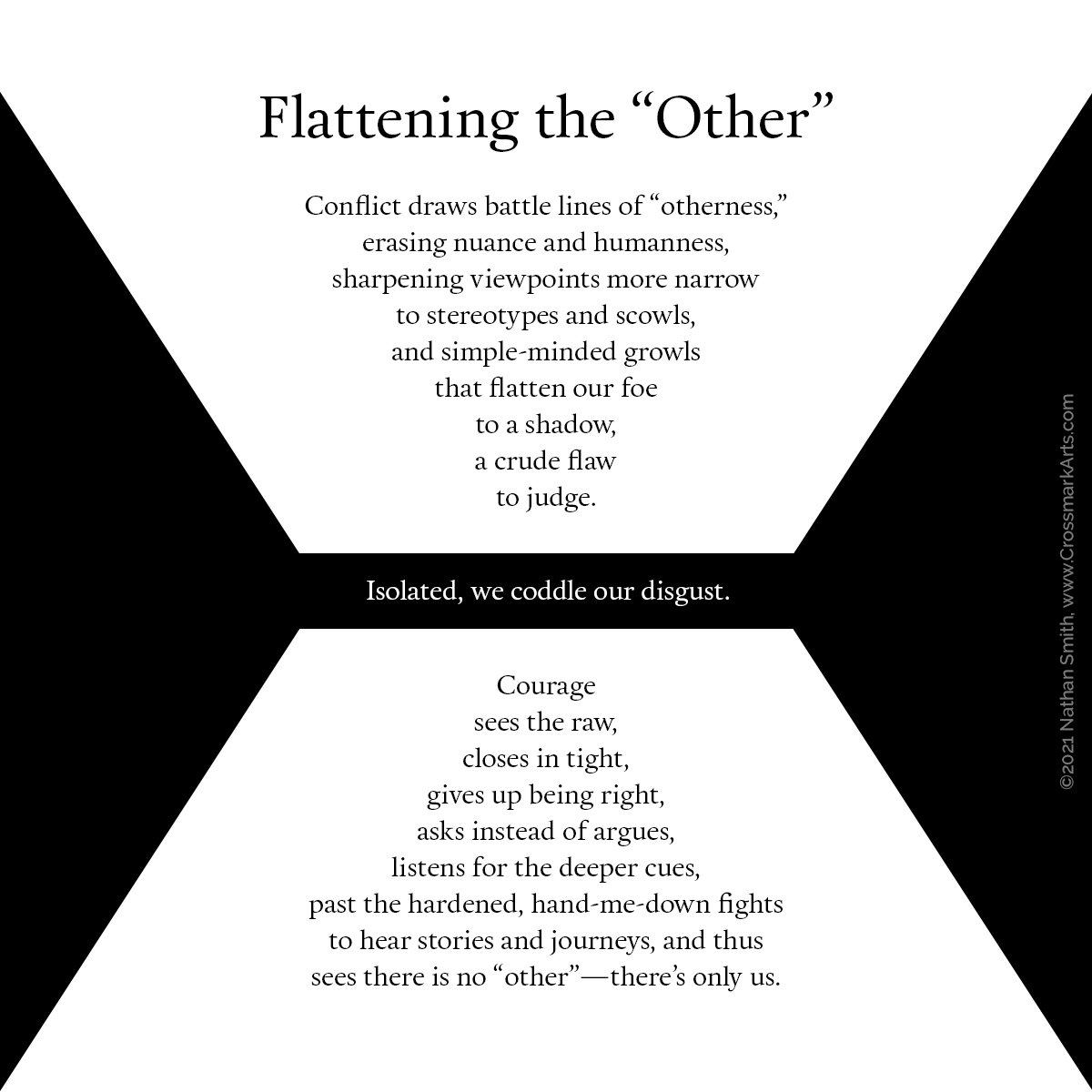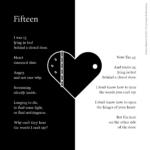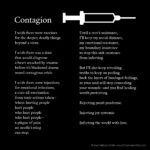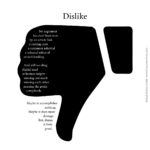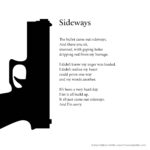Flattening The “Other”
Conflict draws battle lines of “otherness,”
erasing nuance and humanness,
sharpening viewpoints more narrow
to stereotypes and scowls,
and simple-minded growls
that flatten our foe
to a shadow,
a crude flaw
to judge.
Isolated, we coddle our disgust.
Courage
sees the raw,
closes in tight,
gives up being right,
asks instead of argues,
listens for the deeper cues,
past the hardened, hand-me-down fights
to hear stories and journeys, and thus
sees there is no “other”—there’s only us.
Author’s Notes:
Burdened all-too-common divides — religious opinions, political viewpoints, and relational grudges — I wrote this poem as a plea that we might stop “flattening” our foes into one-dimensional figures that are easy to dismiss.
Instead, what if we stopped judging long enough to listen to stories, journeys and nuances? What if we let our worldview expand just a little to find the human in the “other”?
I used decreasing and increasing numbers of syllables per line to visually show the isolation caused by fear and judgment, and the expansiveness created by courageous love that re-engages relationships. 10, 9, 8, 7, 6, 5, 4, 3, 2, 10, 2, 3, 4, 5, 6, 7, 8, 9, 10.
The middle line, “Isolated, we coddle our disgust,” stands alone not just to show how our entrenched opinions leave us lonely, but also to visually represent a wall — and how, on the other side of that wall, if we can leap toward courage, we can expand our world again to find the relationships we long for.

